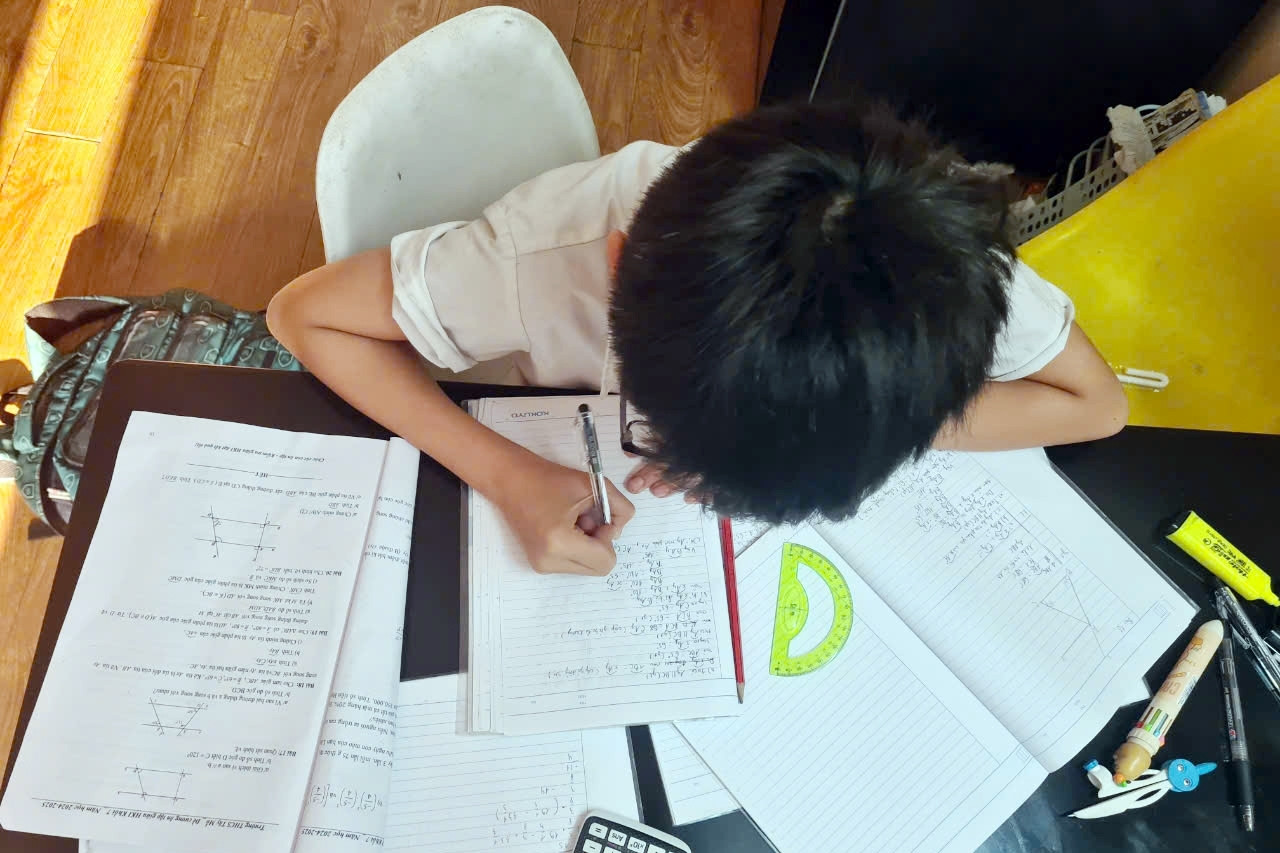My friend's child attends extra classes every day of the week, sometimes several times a day, but always sits at the back of the class and plays games. Their grades remain low, they're still lazy, and they failed their graduation exams.
Two recent phone calls from parents I know have made me think a lot about the topic of tutoring and also helped me understand why tutoring remains a persistent concern in education .
When your children get poor grades, what's the first solution that comes to mind? Is the first thing that comes to mind sending them to extra classes? Is this really the best answer?
When my eldest son entered sixth grade, he announced that his first semester math grade was only 5.8. Instead of worrying, I asked him a simple question: "Why do you think you got such a low grade?" For me, the important thing is to find the root cause and develop a personalized solution.

However, I've been criticized quite a few times for not letting my child take extra classes to improve their grades because my older child hardly ever took any extra classes. It wasn't until 9th grade that my child voluntarily asked to take extra classes.
Conversely, with my second son, I tended to look for a class or tutor to help him with math outside of school hours. But he completely rejected and refused extra tutoring, and I respected this decision, even though his math grades weren't very good.
From the end of 5th grade until the end of the first semester of 7th grade, I patiently accompanied and discussed the meaning of learning, the choices and responsibilities behind each decision. When the mid-term exam of 7th grade took place, I also asked the teachers at school not to offer any reminders or urging, so that my friend could face the results on his own – I needed a push to help him realize that he needed to adjust.
Why do I have two different approaches to my two children – one who hardly ever attends extra classes, while the other needs support from teachers in addition to their mother? That's because, as mentioned above, extra classes for me are a tool, a form of supplementary learning to reinforce knowledge or improve skills, not a "magic wand" to solve all problems.
I know my friend's child attends extra classes every day of the week, sometimes several times a day, but always sits at the back of the class and plays games. Their grades are still low, they're still lazy, and they failed their graduation exams.
My cousin once shared, "Because Mom kept forcing us to go to tutoring, we went to the tutor's house, but the class was crowded, we didn't understand anything, so we ended up going to play soccer or hang out." Before deciding whether or not to send my child to tutoring, I always answer these important questions:
What are the root causes of low scores? It could be due to a lack of knowledge, but it could also be due to physical or psychological issues, or ineffective study methods.
How is your child's learning ability? Does your child learn best when studying alone, in a group, or with direct guidance from a teacher?
What is the goal of extra tutoring? To prepare for a major exam or simply to fill knowledge gaps?
What are the resources and costs for extra tutoring? Does the family budget allow it, and which classes are suitable?
I understand that enrolling your child in classes with famous teachers or hiring a private tutor isn't always the best solution. Nor do large classes, group study, or one-on-one lessons always yield the desired results. It all depends on the individual understanding and educational philosophy of the parents.
Also, because I view tutoring purely as one of many tools, it seems to me that it would be a SMARTer tool if I: Listen to my children to understand their real desires and difficulties; Analyze the root causes before offering solutions; Personalize the learning journey instead of following trends; The decision to enroll in tutoring only arises when the children themselves understand its importance and feel the joy in it.
(SMART is an acronym for: Specific, Measurable, Attainable, Relevant, and Time-bound).
In particular, extra tutoring does not determine whether a child studies hard, plays fewer games, or becomes well-behaved. I believe that philosophical and ethical issues need to be addressed at their root, and extra tutoring cannot be used as a magic solution.
For me, above all, it's crucial to focus on building a clear educational philosophy for the family and developing individualized learning abilities for the child, because philosophy, methods, and support are the key.
Parent Vi Hai (Bien Hoa, Dong Nai)

Source: https://vietnamnet.vn/hoc-them-khong-phai-cay-dua-than-2364360.html









































































































Comment (0)